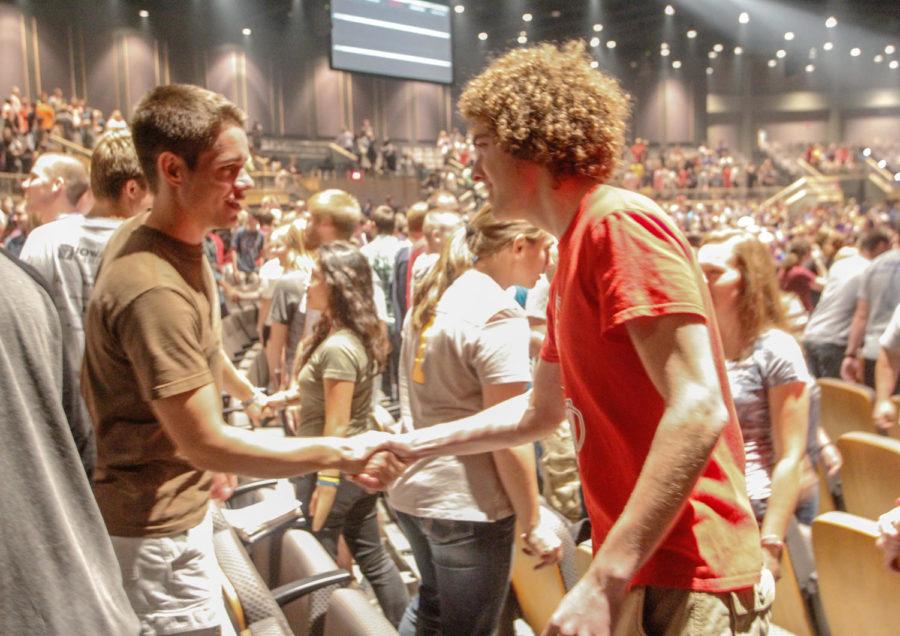Lisowski: Christianity in college
Brandi Boyett/Iowa State Daily
Students in The Salt Company are encouraged to greet each other shortly after Thursday’s worship at Cornerstone Church begins.
April 19, 2023
Today, Christianity is broad and comes in many shapes and sizes. From small, local churches to large congregations now referred to as megachurches. What these churches have in common is generally the same in what they teach, but how they do it and what kind of audience they attract is quite different.
The most common denominations I have run into are either Lutheran, Presbyterian, Methodist or Catholic. They all worship Christ and agree on who He is, and what He did for us. He was born of the Virgin Mary, died for our sins, rose from the dead, ascended into heaven and will return again.
I grew up in a small Catholic Church. I was baptized when I was a baby, attended many youth nights, became confirmed in high school and took Holy Communion more times than I can count. I took part in traditions and sacraments at my church where I furthered my relationship with God and what he means to me, surrounded by other members who were, for the most part, much older than I was.
These traditions seemed normal to me until I grew older and met people whose beliefs were similar, but who didn’t necessarily receive communion weekly, or sit between pews – kneeling during certain prayers. Instead, they were people who grew their faith in God in a church much more modern and youthful.
These people found their faith in a Baptist megachurch. The most commonly known, in Ames, is Cornerstone Church. The church has hundreds if not thousands of members. It is multi-generational and college students seem to be at the forefront of their membership. What Cornerstone Church has over other more traditional churches is the ability to appeal to younger audiences.
That is why its membership is so great.
The music that is performed there, the youthfulness of its members and the more casual sermons that are both meaningful and relatable are all reasons for its success. The hard truth is that most students in college don’t want to attend a more traditional church. To young adults, they are seen as boring or lackluster.
Newer churches, like Cornerstone Church, capitalize on it, grabbing the attention of our demographic by providing us with a strong sense of community and even entertainment.
While it’s not my cup of tea, it’s heartwarming to see more and more students that are giving God a chance. To see people who are willing to devote their lives to Christianity is inspiring for our generation.
I also recognize that religions are complex, and there are so many denominations, but it’s pretty common nowadays to see students proud of sharing that they’re part of a Church, and I wanted to highlight how impressive that is.
With all the bad in the world, it’s encouraging to see that Christianity still has its place on college campuses.







